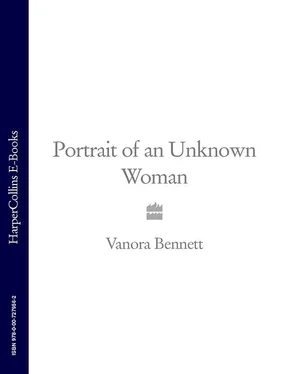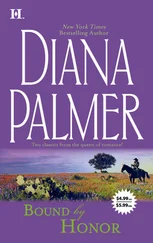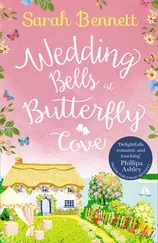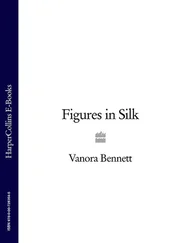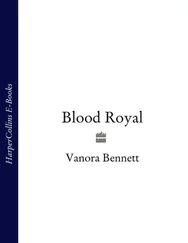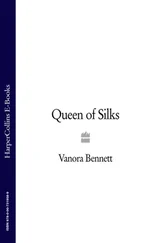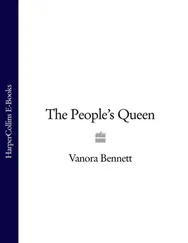Except me. Even if I was staring upriver as longingly as anyone else, I certainly wasn’t looking for any German craftsman bobbing up and down in the distance with a pile of travel-stained boxes and bags bouncing around next to him. He’d be along soon enough. Why wouldn’t he, after all, with his way to make in the world, a recommendation in his pocket, and the chance to make his reputation by painting our famous faces? No, I was waiting for someone else. And even if it was a secret, childish kind of waiting – even though I had no real reason to believe my dream was about to come true and the face I so wanted to see was truly about to appear before me – it didn’t lessen the intensity with which I found myself staring at each passing boat. I was looking for my teacher from the past. My hope for the future. The man I’ve always loved.
John Clement came to live with us when I was nine, not long after my parents died and I was sent from Norfolk to be brought up in Thomas More’s family in London. John Clement had been teaching Latin and Greek at the school that Father’s friend John Colet had set up in St Paul’s churchyard, and Father and Erasmus and all the other friends of those days – Linacre and Grocyn and the rest – had made their passion.
They were all enthusiasm and experiment back then, all Father’s learned friends. When the new king was crowned, and the streets of London were hung with cloth of gold for the coronation – a sure sign that there’d be no more of the old King Henry’s meanness – they somehow got it into their heads that a new golden age was beginning in which everyone would speak Greek and study astronomy and cleanse the Church of its mediaeval filth and laugh all day long and live happily ever after. Erasmus once told me that the letter his patron Lord Mountjoy sent him, telling him to come to England at once and sending him five pounds for his travel expenses, was half-crazy with happiness and hope about the new King Henry. ‘The heavens laugh; the earth rejoices; all is milk and honey,’ it said.
It would surely have curdled all that milk and honey they were swimming in back then if only they’d known how quickly everything would go wrong. That within ten years their playful shared mockery of the bad old ways the old Church had got into would have turned into the deadly battle over religion that we were living through now. That one of Erasmus’ European disciples, Brother Martin of Wittenberg, would have pushed their notion of religious reform so far that peasants all over the German lands had started burning churches and denouncing the Pope and declaring war on both their spiritual and temporal rulers. That Father would have responded by giving up his belief in reforming Church corruption, taken court office instead, got rich, and been transformed into the fiercest defender of the Catholic faith against the radical new reformers he now called heretics – an about-face so dramatic that we didn’t dare discuss or even mention it. That Erasmus, the only one to preserve the memory of those hopes that we’d all entered a more civilised age of debate and tolerance when the new king came to the throne, would leave our house and go back to Europe, from where he’d spend his old age wearily mocking his greatest English friend for becoming a ‘total courtier’ and wondering at the evil real-life form his gentle dreams had taken.
But even back then, the happy humanist throng couldn’t just sit around all day laughing at the wonder of being alive in their land of milk and honey. They had to do something to mark the start of the golden age. First there was the school at St Paul’s. And then, when Father realised how many children he’d gathered in his own house, his four and the orphans like me and Giles and Anne, he persuaded Dean Colet to let him hire away a teacher from the school and set up his own personal humanist academy.
John Clement’s chambers were up at the top of the old-fashioned stone house we were brought up in in London, which had so many creaking wooden floors and dark little corridors and hidden chambers that it could easily have been a ship, so it was natural and pleasing that its name was the Old Barge. He lived at the other end of the corridor from our rooms, next to Erasmus and Andrew Ammonius. If we were playing in the corridor, we had to tiptoe past the grown-up end, shuffling our toes through the rushes, so as not to disturb them while they were thinking.
John Clement was big and tall – a gentle giant with an eagle’s nose and long patrician features and a dark, saturnine aspect that could easily have lent itself to looking bad-tempered if he hadn’t always worn a weary, kind, rather noble look instead. He had black hair and pale blue eyes with the sky in them. He was Father’s age, though taller, with broad warrior shoulders. You could guess at his physical energy – he strode off down the paving stones of Walbrook or Bucklersbury on great impatient legs every afternoon, instead of sleeping after dinner, and he taught us our Latin and Greek letters by pinning them to the archery target in the garden and letting us shoot them through with arrows. We were city children, being raised in a mercantile elite of burghers and aldermen who only kept bows and arrows gathering dust on a hook because they were obliged to by law, and would never raise a sword, so that was our only experience of the aristocratic arts of war. We loved it. Dame Alice raised her eyebrows at John Clement’s preference but Father just laughed. ‘Let them try everything, wife,’ he said. ‘Why ever not?’
Despite his long, athletic body with its muscles and quick reflexes, there was nothing in John Clement that signalled any wish to fight. He had a natural authority that commanded our respect, but he was also very patient with us children, and always ready to listen to other people and draw stories out of them; a comforting paternal presence. He wasn’t like the other adults we knew – the brilliant talkers and thinkers who came to Father’s table – because he was shy about talking of himself. He read a lot; he studied Greek in his room; but he was modest about sharing his thoughts with adults, and especially quiet and respectful around the great minds Father gathered around himself.
It was a different story when he was alone with us. He was so good at playing with words that we children hardly noticed we were also learning Latin and Greek, rhetoric and grammar. To us it was all a great game: verbal melodies and counterpoint in which every voice was always on the verge of laughing and one voice, his, was shaping the jokes.
Of all the games, the one he played best was history. Our serious rhetoric lessons – we studied rhetoric and grammar for several years before moving on to the higher arts of music and astronomy – were drawn from the history games we played together. So were our Latin translation lessons and our first attempts at Greek. He took snippets of street stories about the long-gone wars and embroidered them into tales of derring-do that made it easy for the youngest children in the group to enjoy themselves as much as Margaret and myself. We would put whatever had struck us most in our own lives into the story, then translate the latest bit of play-acting into Latin and back into English. One day, when I was still young and greedy and letting my mind wander to the strawberries ripening in the garden, I even put my gluttonous wish to eat them in. I made the wicked King Richard III pause before some villainous act and tell the Bishop of Ely: ‘My Lord, you have very good strawberries at your garden in Holborn. I require you to let us have a mess of them.’ It made everyone laugh. Father came into the classroom and helped us write the episode down exertationis gratia – for the sake of practice. One day, he said, he’d write a proper history of Richard III, and publish it, and it would be based on our games and the similar ones John had played with the boys at St Paul’s school when he was teaching there. And there was a dish of strawberries on our own table for dinner that day.
Читать дальше
